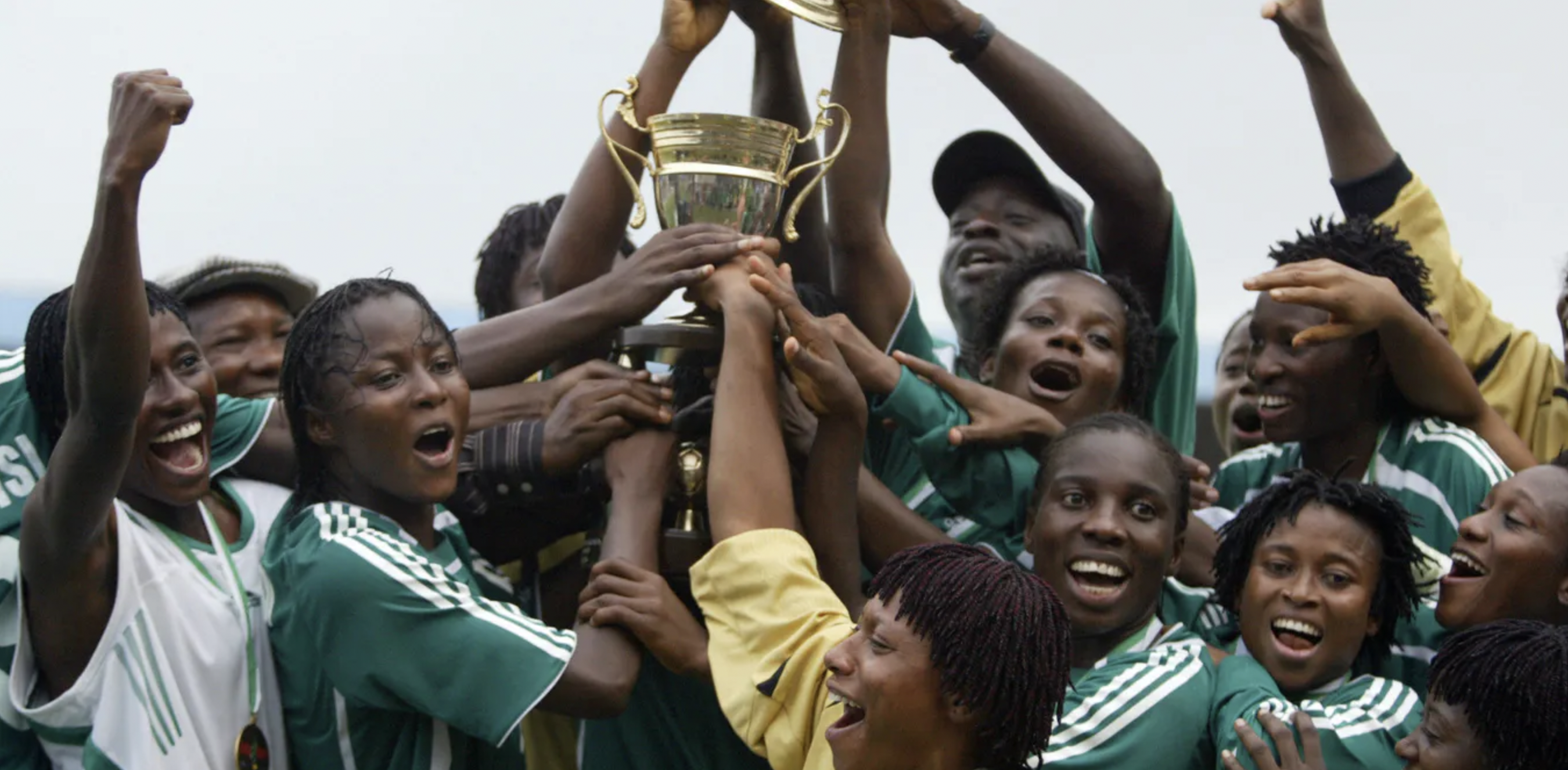By Chuka Onwumechili and Jasmin Goodman/The Conversation
Not too long ago, Desire Oparanozie, then captain of the Nigerian women’s soccer team, again demanded equal pay for female Nigerian players. In Nigeria, female players are paid woefully less than their male counterparts in comparable international roles and her call had come after her team’s sit-in over unpaid bonuses and allowances for the 2019 World Cup.
Women’s soccer is increasingly popular in Africa, with the national federation recently introducing a continent-wide competition for women at club level. And Nigeria’s national women’s soccer team – The Falcons – have long dominated soccer in Afrida. They’ve won 11 of 13 championships including the inaugural one in 1991 and the latest edition in 2018. Yet despite this domination and fame, they are not treated as equal to the men’s team that has not dominated its African opponents.
In our research, we chronicle the struggle of these women – and their spirit of resistance in demanding human rights and visibility. It’s a spirit that can be traced back to the beginning of the women’s game in Nigeria.
 Nigeria’s Falcons/Pius Utomi EkPei, AFP via Getty Images
Nigeria’s Falcons/Pius Utomi EkPei, AFP via Getty Images
A History Of Protest
The story goes back to colonial Nigeria when the lives of both females and males were upstaged by colonial Britain.
Nigerian gender scholar Oyeronke Oyewumi and anthropologist Ifi Amadiume refer to genderless cultures that guided life in the pre-colonial territories that later became Nigeria. They describe a society where roles were not strictly prescribed according to a person’s gender.
However, British colonization introduced a division of labor based on gender. The result was the 1929 women’s protest across southern Nigeria. Women stood up against an attempt by the British to tax them while excluding them from the colony’s labor force.
Protest against what women considered unfair practice continued throughout Nigeria’s colonial period. This protest remains alive today and it has an impact on Nigerian women soccer players.
Soccer was introduced to Nigeria by the colonists in the late 1800s. Women were recorded playing the sport by the early 1930s. However, British administrators frowned on women’s adoption of the sport. In 1950, the Nigerian Dailytimes reported that the colonists threatened to forbid any playing ground that allowed women to play.
Nigerian women resisted this edict and continued to play soccer, on grounds outside the control of the national association. This meant playing on school grounds or wherever there was space. It was a decision that grew the game, increasingly allowing more women to participate.
By the 1970s, women soccer clubs began to emerge in Nigeria and, by the 1980s, the Youth Sports Federation of Nigeria organized a national cup competition for women soccer players.
Eventually the Nigeria Football Association (now the Nigeria Football Federation) recognized women’s soccer by organizing its first national competition for women in order to raise a national team for the inaugural FIFA Women’s World Cup of 1991.
Protest Today
As our chapter in the book Sports in Africa outlines, the recognition of the right of Nigerian women to play soccer ended only one phase of the struggle. Nigeria’s women’s soccer now has participation, but continues to face other obstacles. Among them is unequal pay. As star player Oparanozie said, “We are the most successful female team in Africa, yet we have the largest disparities between men’s and women’s pay.”
Oparanozie’s stance ultimately led to her being stripped of her captaincy and left off the team in recent preparations. Her comment at the FIFA Women’s World Cup in 2019 reflects the resistance captured in the history of women’s soccer in Nigeria. As do the strategies she and her team employed in their 2019 protest: sit-ins or stand-offs, denying renegotiation, boycotts and co-opting media publicity.
The sit-ins or stand-offs hark back to the women’s protests against colonists in the early 1900s. The sit-in, translated more accurately from the local Igbo language, means “sitting on” or “making war on.” It is a feared strategy used by women protesters across Igboland (Southeastern Nigeria) which many of the Nigerian women soccer players call home.
The denial of renegotiated contracts in 2016 was critical because the women, already paid less than their male counterparts, were informed they would be receiving smaller increases than agreed with officials. The women refused to renegotiate.
They then boycotted training sessions and threatened to skip official games. Although the team did not carry out the threat, their training boycotts signaled significant resistance. The co-opting of the media was the key strategy in their protest because it ensured that their plight was heard beyond the audience of team officials. It not only publicized their struggle, it also embarrassed the government and ensured that the women’s goal of remuneration was achieved.
While each strategy led to a measure of success, the players have failed to publicly protest against other poor treatment, for example the lingering homophobia expressed by Nigerian sports officials and media towards women soccer players. Given the criminalizing of homosexuality in Nigeria, however, there is significant risk for anyone who dares to resist the law.
In conclusion, our research analyzes a history of Nigerian women’s protests and links it to a lengthy period of resistance in the country’s women’s soccer. Not only does the ongoing resistance point to the struggle and fighting spirit of Nigerian women, but it points to their resolve to achieve against odds.
Chuka Onwumechili is a communications professor at Howard University. Jasmin Goodman is also a professor at Howard. This post is republished from The Conversation under a Creative Commons license.
–
Comments welcome.
Posted on October 6, 2021


